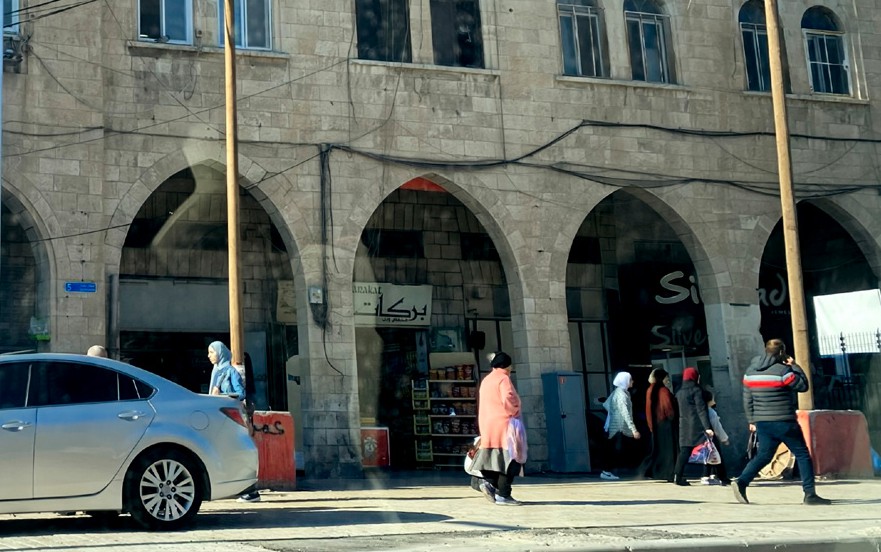
Ramadan in Jerusalem
1. Ramadan has started off peacefully in Jerusalem. The unrest that was feared during Friday prayers at the Temple Mount, and elsewhere, did not materialize this past Friday, the first one of the month.
Hamas has not succeeded, thus far, to ignite the situation, despite its efforts and those of others. For instance, the speeches of incitement by Islamic Movement (Northern Branch) head Raad Salah, Sheikh Akrameh, and Assam Amira did not have their desired effect. The detachment between the Arab street in Jerusalem from what is going on Gaza is very blatant, even though a third of Ramadan has passed.
2. Also as of now, the restrictions on overnight stays on the Temple Mount are not being violated. This means that the Itikaf practice of spending the night in Temple Mount mosques during the last ten days of Ramadan has not been provocatively extended to earlier in the month. The Waqf issued a special ruling against practicing Itikaf before the last ten days of Ramadan, as in other years.
The ruling is being followed, despite outside pressures from Jordan and extremist Islamists upon those responsible for the mosques to allow worshipers to remain there at night.
3. The cooperation between Jerusalem Arabs and anti-Israel South Africa now extends to 20 different schools, and is also expanding to the business sector.
4. Regarding the reports that dozens of Arab workers, responsible for running governmental and municipal development programs in eastern Jerusalem, have been let go: It has now been learned that the contracts with the said employees expired upon the conclusion of the previous five- year plan – but that the contracts are expected to be renewed as soon as the preparations for the next program are completed.
5. Protests against the presence of UNRWA bodies in Jerusalem have apparently been effective. Signs that Israel intends to reduce or even cancel the organization’s activities and its presence in Jerusalem are increasing. Some UNRWA offices have been in Jerusalem for a long while, while others, according to various reports, have recently moved their activities to the city from Gaza.
Because UNRWA runs so many Jerusalem schools, the main concern now is what will happen to the students if UNRWA is closed down. No one wants them wandering on the streets, nor does Israel want to see them turning to extremist Islamic elements such as Hamas for their leisure activities – as has happened in the past.
UNWRA’s schools in Jerusalem have about 1,800 students. UNRWA also employs between 400 and 500 workers in the city, and they will be forced into a difficult financial situation during difficult times if it closes down. The organization also runs clinics and other services, especially in the neighborhoods outside the security barrier. Alternative solutions will be required for all of these, so that the extremists not strengthen their foothold in the Arab public by providing services, education and financial aid.
This is how Israel tries to push Arabs out of jerusalem:
Jerusalem Updates
The Al-Quds Al-Bawsala website notes that for the first time since 1967, the security forces prevented the entry of ambulances and medical teams into the Temple Mount.
Haled Zabarka, an expert lawyer in Jerusalem affairs, claims that the security forces have installed listening and other tracking devices around the Temple Mount. He says they are “more dangerous than the security cameras.”
Social Media
→ This The 0202 Viewpoints from Eastern Jerusalem webpage publicized a call to Ramadan visitors to Jerusalem to purchase as many goods as possible in Jerusalem, from food to prayer mats. The call was originally shared by well-known Jerusalemite Ahmed Barkhat, for the purpose of “buying more time in Jerusalem.”
The intention is apparently to strengthen the long-term Arab presence in the city, on the backdrop of claims that the city is becoming “Judaized” while Arabs are being pushed out. These claims are not factually supported, however; in 2021, for instance, the city’s Arab population grew by 2.6%, while the Jewish population grew by only 1.4%.
Trending
The first week-plus of Ramadan saw a continuation of the relative quiet in Jerusalem, as has been the case throughout the nearly half-year of war in Gaza. The attempts by Hamas (and Hizbullah) to label the war as “The Al- Aqsa Flood” and “Shahids on their way to Jerusalem” failed to enthuse the Arabs of Jerusalem, who did not get swept up in war frenzy against Israel. Under the surface, coordination continues between Israeli, Jordanian, and PA elements regarding Ramadan prayer regulations and the maintaining of security quiet. The Arab street in Jerusalem sees no point in taking part in this war, even as the terrorist elements seek to stir them up. So far, these elements have had very little success – but the situation remains fragile.








